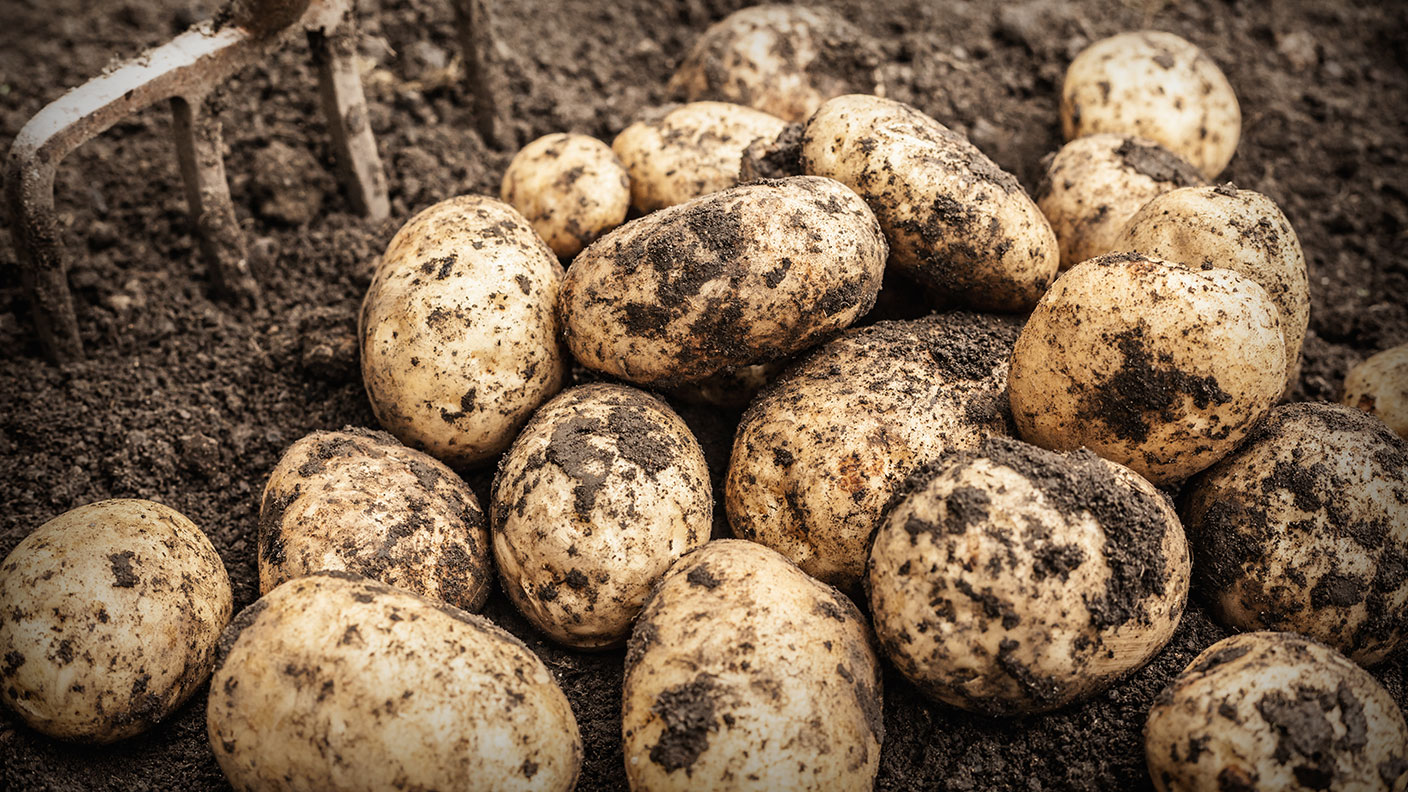28 July 1586: Britain is introduced to the potato
On this day in 1586, Sir Thomas Harriot brought the first potato back to Britain from the 'New Found Land of Virginia'. We've been in love ever since.


Get the latest financial news, insights and expert analysis from our award-winning MoneyWeek team, to help you understand what really matters when it comes to your finances.
You are now subscribed
Your newsletter sign-up was successful
Want to add more newsletters?

Twice daily
MoneyWeek
Get the latest financial news, insights and expert analysis from our award-winning MoneyWeek team, to help you understand what really matters when it comes to your finances.

Four times a week
Look After My Bills
Sign up to our free money-saving newsletter, filled with the latest news and expert advice to help you find the best tips and deals for managing your bills. Start saving today!
If there was ever a vegetable that has helped shape our national destiny, it's the humble spud. A mainstay of our national dish, we serve it in a hundred different ways, and always insist on it being there for Sunday lunch.
In England, it partners up with cabbage to make bubble and squeak', or colcannon if you're in Ireland. And in Scotland, tatties' go hand-in-hand with neeps on Burns Night. In fact, the potato is so much a part of our culture, it's easy to forget it isn't even British.
On this day in 1586, Sir Thomas Harriot stepped off the boat in Plymouth. He had just returned from Sir Walter Raleigh's English colony on Roanoke Island in modern-day North Carolina, where he had made detailed studies of the wildlife and potatoes.
MoneyWeek
Subscribe to MoneyWeek today and get your first six magazine issues absolutely FREE

Sign up to Money Morning
Don't miss the latest investment and personal finances news, market analysis, plus money-saving tips with our free twice-daily newsletter
Don't miss the latest investment and personal finances news, market analysis, plus money-saving tips with our free twice-daily newsletter
In the months that followed, Harriot recorded his adventures in A Briefe and True Report of the New Found Land of Virginia. In it, he described a curious tuber:
"Openavk are kind of roots of round forme, some of the bignes of walnuts, some far greater, which are found in moist & marish grounds growing many together one by another in ropes, or as thogh they were a string. Being boiled or sodden they are very good meate."
Britain isn't short of "moist & marish grounds" and the potato soon took root, so to speak. Since then, potatoes have become part and parcel of our national cuisine and our history too.
The failure of the potato crop in Ireland in the 1840s sparked one of the first great waves of emigration to the United States. And the great Marxist thinker, Friedrich Engels, even saw the "farinaceous tubers", as he called them, as having fuelled Britain's industrial revolution: "[Iron] is the last and most important of all raw products that play a revolutionary role in history; the last if we except the potato."
So, next time you're eating mashed openavk', remember that if it wasn't for Sir Thomas Harriot, Britain today might look and taste very different.
Get the latest financial news, insights and expert analysis from our award-winning MoneyWeek team, to help you understand what really matters when it comes to your finances.

-
 Should you buy an active ETF?
Should you buy an active ETF?ETFs are often mischaracterised as passive products, but they can be a convenient way to add active management to your portfolio
-
 Power up your pension before 5 April – easy ways to save before the tax year end
Power up your pension before 5 April – easy ways to save before the tax year endWith the end of the tax year looming, pension savers currently have a window to review and maximise what’s going into their retirement funds – we look at how
-
 13 April 1960: the first satellite navigation system is launched
13 April 1960: the first satellite navigation system is launchedFeatures On this day in 1960, Nasa sent the Transit 1B satellite into orbit to provide positioning for the US Navy’s fleet of Polaris ballistic missile submarines.
-
 9 April 1838: National Gallery opens in Trafalgar Square
9 April 1838: National Gallery opens in Trafalgar SquareFeatures On this day in 1838, William Wilkins’ new National Gallery building in Trafalgar Square opened to the public.
-
3 March 1962: British Antarctic Territory is created
Features On this day in 1962, Britain formed the British Antarctic Territory administered from the Falkland Islands.
-
10 March 2000: the dotcom bubble peaks
Features Tech mania fanned by the dawning of the internet age inflated the dotcom bubble to maximum extent, on this day in 2000.
-
9 March 1776: Adam Smith publishes 'The Wealth of Nations'
Features On this day in 1776, Adam Smith, the “father of modern economics”, published his hugely influential book The Wealth of Nations.
-
 8 March 1817: the New York Stock Exchange is formed
8 March 1817: the New York Stock Exchange is formedFeatures On this day in 1817, a group of brokers moved out of a New York coffee house to form what would become the biggest stock exchange in the world.
-
7 March 1969: Queen Elizabeth II officially opens the Victoria Line
Features On this day in 1969, Queen Elizabeth II took only her second trip on the tube to officially open the underground’s newest line – the Victoria Line.
-
4 March 1519: Hernan Cortes arrives in Mexico
Features On this day in 1519, Hernan Cortes landed in Mexico before marching on the Aztec capital, Tenochtitlan.